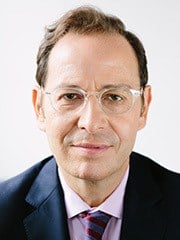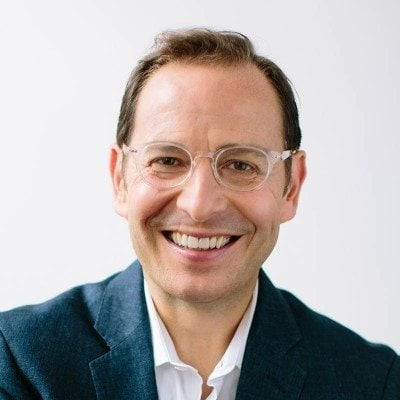Like you, I wish that by now we could say we are freed from the grips of the COVID pandemic. For a few weeks this past summer, many of us in the U.S., especially the vaccinated, were starting to believe that COVID might become a thing of the past — but we now know that this is far from being true.
Thinking globally, what consumes me the most is the tragic lack of vaccine access and the pernicious immorality with which certain governments have allowed this pandemic to exacerbate long-standing inequities for the world’s most vulnerable communities: people who do not have food and shelter, whose human rights are violated daily, and who are striving to live healthy lives against great odds.
The facts about access to vaccines are deeply disturbing. By September 15, nearly 61% of people in high-income countries had received at least one dose, while only 3% of people in low-income nations had received a single shot.
And while Africa is now in the grips of a deadly surge, we know that only a fraction of the more than 5.5 billion doses injected around the world have gone into arms on that continent. In the Democratic Republic of the Congo, for example, just .09% of the population has received one dose. Tragically, the huge health and wealth gaps that predated the pandemic have been replicated and intensified by the virus, effectively cutting off marginalized communities from the very shot that can save their lives. Cruelly, governments have used COVID as an excuse to further repress minorities and marginalized communities, sometimes blaming them for the pandemic.
As Jews who are deeply committed to global justice, we know that we must act. In our tradition, we seek to transform the wisdom of earlier generations into bold action today. We know from studying Pirkei Avot—the Ethics of Our Ancestors, codified in the Mishnah some 2,200 years ago—that when one saves a life, it is if they have “saved an entire world.” And the rabbis of the Talmud declared that one can even violate Jewish law in order to save lives. In our tradition, there is no “I” that can exist separate and apart from shared needs, shared obligations and shared responsibilities. We value each person’s life and infinite dignity, because we all flow from the same well of life, and we are all bound to one another’s fates.
In addition to the wisdom of the rabbis, we believe in the right to health for every person as enshrined in the Universal Declaration of Human Rights. Sadly, from our knowledge of Jewish history, we know what it means to be blamed as a minority for plagues and disease.
For these reasons, we at AJWS are demanding that our government—along with governments around the world and global bodies such as the UN and the WHO—ensure that every person has access to the protection of vaccines. To ensure that everyone has access, we must fight hardest for the most marginalized, the most excluded, those who have the least power and face the most prejudice.
Some of the brave activists we support around the world are fighting for vaccine access and against discrimination. In India, our grantee partner Kashtakari Panchayat is organizing vaccine drives for waste-pickers—essential workers who are among the most vulnerable in the country. In the Dominican Republic, after the government rolled out a vaccination campaign that cruelly left out migrant workers and black Dominicans of Haitian descent, AJWS grantee OBMICA launched a campaign that successfully changed the policy, ensuring vaccines for everyone.
In Washington, D.C., members of our government affairs team are working with Congressional staff and Biden administration officials to ensure that U.S. foreign policy will take additional steps to foster greater equity in access to COVID vaccines around the world. While we were heartened by President Biden doubling the number of vaccines the U.S. will buy to distribute globally, he and our country must do much more to ensure universal access and do so quickly.
We are asking our government to:
- Promote robust distribution of vaccines globally
- Prioritize vaccine access for marginalized communities
- Ensure strong U.S. foreign assistance funding to address the devastating impacts of COVID-19 on human rights
To advance this agenda, we have joined with partners, including other international NGOs, health advocates and faith-based activists, to press the administration and Congress to act. We are laser focused on ensuring that the communities we support in Africa, Asia, Latin America, and the Caribbean will benefit from changes in U.S. policy. In doing this work, we are making sure that the voices of our grantee-partners are being heard, and we are doing all we can to ensure that their needs are met by the U.S. and the global community.
Now, as we have entered the Jewish New Year, we must redouble our efforts to live the ancient belief that to “save a life is to save the world.” That value, more than two millennia old, reflects a timeless wisdom, which must now be taken up in vigorous and new ways. This is our mission. This is our work. We must repair the world by ensuring that all people—especially people who have been excluded or mistreated—are included in the promise of science, public health and humanity.

Robert Bank is President and CEO of American Jewish World Service, the leading Jewish organization working to promote human rights in Africa, Asia, Latin America and the Caribbean.. Robert has spent his career championing human rights as an attorney, activist and leader. He joined AJWS as Executive Vice President in 2009 and previously served in New York’s municipal government and in the leadership of GMHC—one of the world’s leading organizations combatting HIV/AIDS. Robert has been honored with GMHC’s Lifetime Achievement Award and the Partners in Justice Award from AVODAH: The Jewish Service Corps.






